- Home
- James Phelan
Liquid Gold Page 4
Liquid Gold Read online
Page 4
“Not really,” Fox said, reading Hutchinson’s face, the look that asked if he was taking drugs, legal or otherwise. “No, nothing at all.”
“Fair enough. Are you seeing someone for it?”
“Nah,” Fox said, looking absently towards the television that showed Pakistani protesters burning an American flag. “Been through all that, and now I’ve just been taking it easy—even having a fun time in the press lately.”
“Yeah, I saw you on Dateline yesterday.”
“I’m in the eye of a big fat story,” Fox said, “and shows like Dateline seem more interested in the ramifications than the underlying cause.”
“I know what that’s like—being questioned for raw results and nothing more,” Hutchinson said, his Adam’s apple moving as he swallowed. “Anyway, we’ve got a lot of good shrinks here in Manhattan that we use, if you ever need to talk to someone. They’re used to dealing with the kind of trauma you’ve been through.”
“Getting grilled on national TV?”
“Your Nigerian thing, dumbass,” Hutchinson said. “That and … losing Kate.”
“Look, I got it,” Fox said with a tight smile to force away the memories. “I needed a rest, which I’ve had. I needed to cut back on stress, which I’ve done. I’m not driving a desk at GSR a hundred hours a week any more.”
“You went to India for work. I read the water piece you did for Vanity Fair that started all this scrutiny.”
“I’ve been there a few times recently,” Fox said, sipping his coffee as he sat on the stool opposite Hutchinson and looked him right in the eye. “So, come on, why are you here, Andrew? Or are federal agents now making house calls to journalists to discuss articles they’ve written? Or are you just a fan? And what’s with all the bullet-stoppers out there?”
“Lach,” Hutchinson said, his voice serious. He took a breath. “There’s someone out there who wants you dead.”
“Mate,” Fox said, half smiling, “I’ve been shot at more times than you’ve been to the doughnut shop. Seriously—you know how many threats we get at work? Unless you’re talking Ozymandias or Dr Manhattan, I think I’ve got good offence and defence and have run this play hundreds of times.”
Hutchinson took an envelope from inside his overcoat and put it on the table. Fox tilted his head to the side.
“So what’s this, another job offer? How many times do I have to turn you down…”
Hutchinson watched Fox closely as he pulled out some printed pages: email and cell-phone transcripts, screen printouts from an online gaming website. He flipped through the pages, reading as quickly as comprehension permitted. He stopped and looked at Hutchinson.
“Lachlan, this ain’t bush league. This here threat against you and the others; it’s the real deal.”
Fox looked back to the printouts. “Al Gammaldi?”
“We’ve got guys on him too,” Hutchinson said, tapping his watch without checking it. “They’re taking him into GSR right now.”
“This—”
“It’s a freelance hit list. It’s been authenticated separately through a couple of our intel agencies. The intercepts came in overnight—”
“After my Dateline thing yesterday.”
“Yeah, we got it about six hours ago. It may be up to twelve hours old.”
“What … Where’d this originate?”
“We’re working on that, believe me. You’ll get details when I do—right now, I’ve got a mosaic of scraps of intel that have just been verified.”
“But how credible is credible? I mean, I’ve had death threats—” Fox cut himself off, caught up. “Verified?”
Hutchinson looked at his coffee as he replied, “Ambreen Butt is dead.”
“No…” Fox said, gutted. Ambreen was the fixer he’d used in Pakistan’s northern areas, the woman who had shown them around, acted as a translator of Pushtu and Urdu, made them welcome in every house and situation they had encountered in the ten days he and Al Gammaldi had spent in the area.
“Shot point blank in her apartment in Islamabad; professional. Took out her husband, too, four hours ago.”
Fox had a thousand-mile stare, boring right through the paper in his hands. “What are you doing about the others?” he ground out, gripping the list of names in his hand: Lachlan Fox, Alister Gammaldi, Omar Hasif, Sardar Yusufzai, Ambreen Butt, Art Kneeshaw.
“Hasif is in Libya and we’re looking for him. Sardar Yusufzai—engineer on the water project, yeah?”
Fox nodded.
“He’s somewhere in Pakistan—last seen in Karachi—and we’re fighting through all kinds of bullshit to get the ISI to help find him. The Libyans are fucking organised next to those guys.”
Fox knew that the Pakistani Inter-Services Intelligence, ISI, was going through its own troubles at the moment after the fallout of the 2008 Mumbai terrorist attacks and subsequent Taliban battles, not to mention the shift in their scope since Pervez Musharraf left office.
“This Art Kneeshaw, who’s he?” Fox asked.
Hutchinson shook his head. “I was hoping you could tell me. We’ve got nothing.”
“Never heard of him.”
“Is there something else to this story that you haven’t reported?”
Fox shook his head and kicked into gear, scrolling through his iPhone contacts, then calling the head of GSR security.
“Rick, I just got info on Ambreen—there’s a hit out for—”
Hutchinson watched Fox as he listened, his face tense. Richard Sefreid, a former US Army officer, was an adept leader when it came to his present job description, protecting GSR personnel. His nine-member outfit was constantly crisscrossing the globe pulling security duty for the investigative reporters, often also supervising outsourced security contractors. Hutchinson waited while Fox heard something he clearly didn’t like.
“All right, I’ll work it out now, thanks,” Fox said, about to hang up, his face flushed with anger. “What? No, I’m all good, got the Feds here now. See you at the office.” Fox ended the call and shook his head.
“What did Richard say?”
“I’ve got another fixer, Govind, in India—not on this list. Shot dead an hour ago in a home invasion.”
Hutchinson’s thumbs worked overtime at his BlackBerry’s keyboard.
“Can you bring Hasif into the US to protect him?” asked Fox.
“Yes,” Hutchinson said, still typing. “Temporary visas are being sorted today. This Hasif, he’s an engineer too? What did he do for you?”
“He’s good people, gave me a lot of background technical info,” Fox said. “He oversaw the piping and pumping installations at the water plant. The whole project was divided into teams; he only knew of the plant and its immediate outflows but he cooperated fully.”
Hutchinson stopped typing and looked at Fox. “He proved significant water theft from the Indian side of things?”
“He’s—that’s still the trillion-dollar legal question.”
Hutchinson nodded, slowly. He had almost given up believing that someone with Babich’s power and influence—not to mention his contacts in the intel world, both in Russia and abroad—could be stopped. But just maybe … he clicked a few more keys on his BlackBerry then looked back to Fox.
“I’m waiting on confirmation that the embassy in Tripoli picked up Hasif and his family,” Hutchinson said. “It’s a long list—we’ve got everyone from the deputy mission chief down out looking for him, checking in with all known family and friends.”
“He’s a family man,” Fox said. “Find his family, you’ll find him.”
10
TRIPOLI, LIBYA
“This is the life … This is what home really feels like.”
Omar Hasif flexed his heavily cracked hands and squinted through his glasses against the bright sunlight as he watched his young son, Wasim, playing with a friend in the neighbour’s front yard.
The tree-lined street was clean an
d tidy, and many of the houses had well-kept plants in their front yards. There was plenty of green, thanks to Hasif’s engineering work. Meters were non-existent here; water was an infinite resource provided by the state. It bubbled up from deep in the ground hundreds of kilometres away and was treated and supplied safe for household consumption.
Hasif’s work was important, and it paid for his comfortable life, although being good at his job kept him in demand, on the road with his family, regularly having to settle into different large-scale engineering projects around the world: Iran, Pakistan, India, Malaysia, Malta. One month consulting on a new dam, the next a desalination plant. He earned good money but had nowhere to settle down and spend it. He was even going to Israel next month, a two-week trip without his family, and that water company had paid half his fee upfront—it was now parked here out the front of his sister’s house in the form of a new Audi SUV, big and shiny and destined to be garaged here in his old home town for the short times he was here. The irony in this was not lost on him. He would settle down soon enough, not so much early retirement as a downsizing to appreciate the good life.
“Omar, come in and keep me company,” his brother-in-law, Broseph, said, his head jutting out the flyscreen front door. “The women, they are driving me nuts.”
“Come out here and sit,” Hasif said, gesturing to a set of chairs at a table on the lush green lawn. The join lines were still visible on the roll-out turf.
“I am in the outdoors too much,” Broseph replied. “Besides, the football is showing, come see it with me. I have ice-cold beer in the fridge in the TV room.”
“Beer?”
“Non-alcoholic—it’s good, brother.”
Hasif nodded and looked over to his son. “Wasim, not too long, hey?” he said and then smiled as his son ignored him, too busy playing and making shooting noises. “Wasim, lunch soon, okay?”
Wasim half-turned towards his father and nodded while continuing his plastic toy-soldier game. Both kids were a little on the heavy side; too much junk food and not enough exercise, not like in his day. He had provided a better life for the next generation, but they were always hungry for more and bigger and better—Hasif wondered when that cycle would end as he walked into his sister’s house.
He could hear his wife and his sister’s high-pitched laughter from the kitchen as they rolled spiced rice into dolmades and prepared flat breads and dips. It smelled of his childhood, long summer days when his mother would spend half her waking days in the kitchen for their family. His aunt was often there, too, and he loved her cooking. He missed this country. He should tell his wife more often how happy she made him. He should get a job here in Tripoli—his old engineering school at Al Fatah University sent him an invitation to join their teaching ranks each year, and each year he politely refused and instead gave a donation—and slow down, in a home full of good food and family. On weekends he would sit on the couch like his brother-in-law, not having to take the family to the major shopping centre in whatever new city they were in that week. To have a house like this, a street like this, food like this, routine like this. The beauty of conforming to the old ways.
Hasif poked his head into the kitchen and watched his wife wrapping spiced rice in vine leaves; some rice had stuck to her pregnant belly. She was seven months along now, and as she looked up at him and smiled she wiped her sleeve across her forehead to remove sweat. Her eyes were alive: perfect almonds framed with thick black eyeliner. She was as beautiful now as when they’d met as teenagers. He snuck in behind the other woman and pinched a dolmade, then left the room as his sister flung a kitchen towel in his direction. He didn’t mind that they joked and laughed and called him fat because he knew that when he settled somewhere soon, and stopped chasing the big pay days, he would have his wife cook like this every day. He’d stop eating so much McDonald’s, and their friends would speak Arabic instead of a foreign tongue.
11
NEW YORK CITY
Fox’s iPhone rang—it was Alister Gammaldi, his best mate since high school. They had joined the Australian Navy together as eighteen-year-old officer cadets and had been by each other’s side ever since, through too many crises to count. Gammaldi was now a pilot with GSR and had accompanied Fox to some of the world’s most volatile places.
“Mate—”
“Lach, I’ve got Feds here—”
“I know,” Fox said. “Pack for India and meet me at GSR.”
“We’re still going to India?” Gammaldi seemed surprised. “Not sure if you heard me right. There’s FBI dudes here saying that my life—our lives—are in danger.”
“Al—just pack, I’ll meet you at the office to talk. Organise a flight to India as soon as you can.”
“All right,” Gammaldi said. “Lach, what’s this about?”
“We’ve got too close—there’s a price on our heads.”
“Really?” Gammaldi asked, more impressed than worried. “How much?”
“Figure of speech, Al. Who knows? But this is real,” Fox said. “They took out Ambreen and her husband last night, and Govind just now—all shot.”
“Jesus,” Gammaldi said. “And we’re wanted, hey? I’d feel like Ned Kelly, but Ambreen and Govind—”
“I’ll meet you at work in thirty.” Fox ended the call and took in Hutchinson’s expression. “I’m not going to wait this out; I have to finish this story.”
“I know.”
“They intimidate and scare journalists all the time and it’s not happening this time.”
“I agree,” Hutchinson repeated. “It’ll be harder for us to protect you over there, though.”
“I can look after myself,” Fox said. “And you know Al … Hell, drop him in the middle of the ocean and he’ll reorganise the food chain.”
“Yeah, I thought as much,” Hutchinson said. “Listen, I’ve got my own ideas, but who do you think this is?”
“I’d put money on Umbra, but they’re too smart and cashed up to leave a trail like this,” Fox said.
“We’re working on that angle, tilting the earth, believe me. More often than not it’s the simple mistakes that lead to the big results—this may just be Babich’s. You know we’ve been trying for years to get this guy, Lach.”
“I made waves for them … Hell, they’ve probably got all sorts of Pakistani nationalist nuts for hire lining up to take us out.”
Hutchinson stood and slipped on his overcoat. “We’ll pick up Hasif. I’m meeting with State later today to fast-track an emergency asylum request for permanent residency and FBI protection. But I’ll need to hear it from you before they hear it in Hasif’s debrief: what are you working on that’s not here, that hasn’t been in the press? What’s this really about?”
“Water.”
“Water?”
“It’s that simple.”
“I thought this could have been about Rollins and Mendes,” Hutchinson said quietly. His words hung in the air for almost a minute of silence between them; for both men, the memories were too fresh. Michael Rollins had been an experienced GSR reporter who’d got too close to a story last year in Nigeria and paid the ultimate price. A story that led to Umbra. Rollins was a good man, ultimately, and like too many good men in his profession, he’d got in too deep. So deep it became difficult to tell friends from enemies, and he was never able to clear things up sufficiently for those he left behind … And neither was Steve Mendes, an ex-CIA agent who’d proved to be in on the ground during Umbra’s founding, although his departure was no loss.
“You know this water project goes back to Umbra, and you pissed them off a few months ago.”
“Yeah, that’s just it,” Fox said, leaning on the side of the kitchen table opposite the Fed. “I want answers. I need them. You were right about that months ago. Rollins, Umbra … This is big … This water issue is scratching the surface of what Babich and his companies do, all headed by these ex-KGB/FSB types. Strip mining for gold in Borneo; Arctic expl
oration for gas and oil; an alternative gas pipeline around the Ukraine, another that snakes through South Ossetia—they’re into everything, and everything they touch makes them billions and turns the local area to shit—no rules, no governance, a corporation gone mad.” Fox sighed. He took a final sip of coffee before rinsing the mug hard under the tap.
“You turned me down a couple of months ago,” Hutchinson said quietly.
“Before then, too.”
“You could have been a part of this, I mean really … A part of our investigation.”
“I wasn’t ready for something like this a couple of months ago,” Fox said. “You knew that.”
“Yeah, I knew it,” Hutchinson said and buttoned up his overcoat. He flicked though the Times, seeing but taking nothing in. “Can’t turn the country down three times.”
“Who’s rule?”
“Mine,” Hutchinson replied. “We had a good opportunity at that time, is all. You could have gone into Umbra from the inside, like Rollins.”
“Opportunities come up all the time.”
Hutchinson looked up at him quickly, expectantly.
“I’ve been working on this on my own for a bit, nibbling around the edges,” Fox said. “This is the break, Andy. They’ve been forced to act and this will be their undoing. I’ve got under Babich’s skin, and as long as I keep at him, he’ll be worried, he’ll make mistakes.”
“Yeah?”
“Let’s do this,” Fox said. “Let’s bring this bastard down, him and all his—”
Hutchinson held up a hand.
“This isn’t something for your own—”
“Two dead,” Fox said, tapping the transcript on the table between them, “and a guy who’s going to be seeking asylum because he’s connected directly with Umbra. What he knows, and what they believe he may have told us, is damaging enough to kill everyone on this list. It’s a start. You asked me if there is something we haven’t reported. There is, and it’s not because I’m holding back, it’s because I haven’t put it all together yet. I need to talk to these guys again, I need to dig some more, to see what I missed. I need to draw Babich out, try to get to the real Russian power players.”

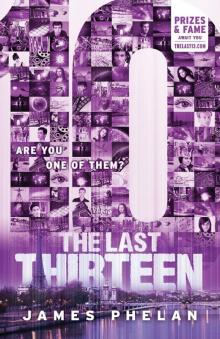 10
10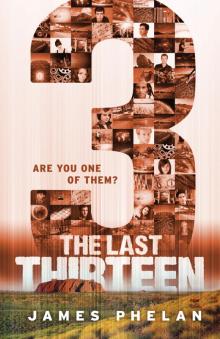 3
3 Survivor
Survivor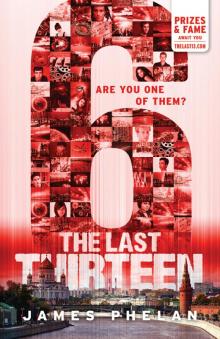 6
6 The Hunted
The Hunted Quarantine
Quarantine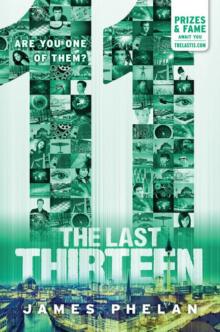 11
11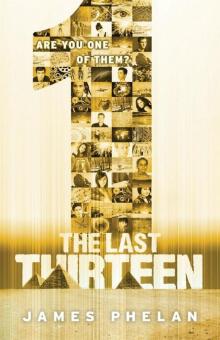 The Last Thirteen - 1
The Last Thirteen - 1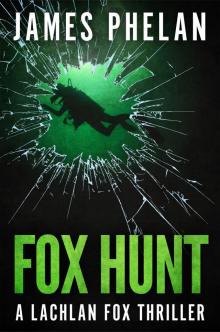 Fox Hunt
Fox Hunt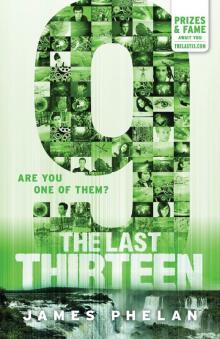 9
9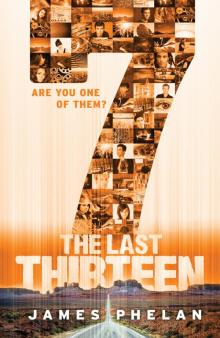 7
7 Patriot Act
Patriot Act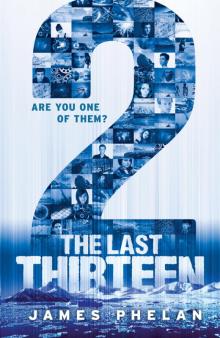 2
2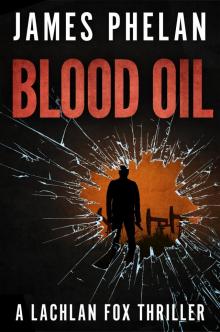 Blood Oil
Blood Oil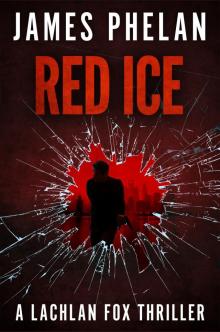 Red Ice
Red Ice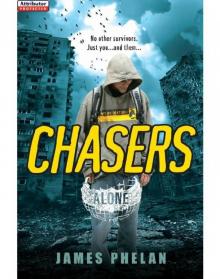 Chasers
Chasers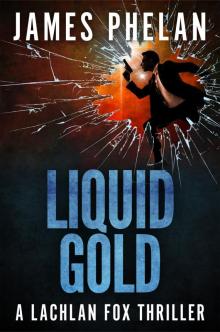 Liquid Gold
Liquid Gold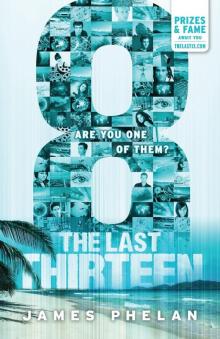 8
8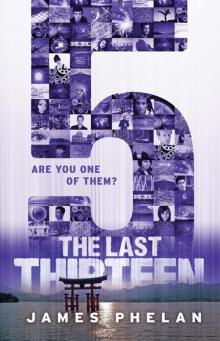 5
5 The Spy
The Spy Kill Switch
Kill Switch Dark Heart
Dark Heart